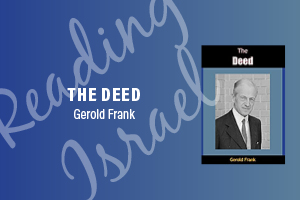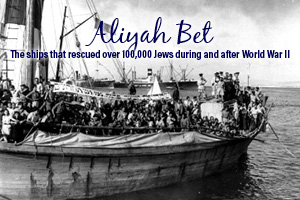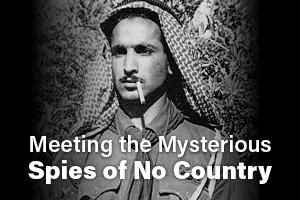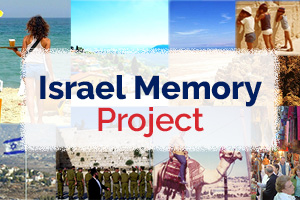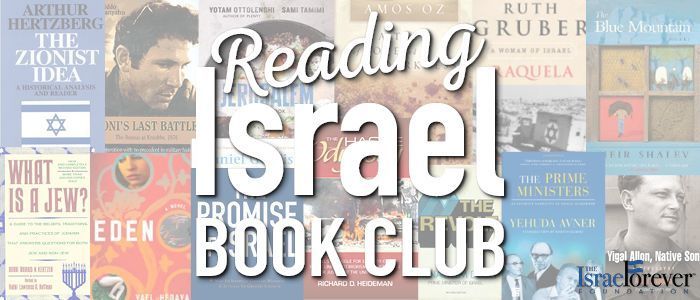A Tale of Two Eliyahus
By Nathan Ashner
The Deed is a book written by Gerold Frank in 1963. It tells the story of two young Jewish boys who grew up in the Yishuv period, during the Jewish resettlement of the land of Israel leading up to the establishment of the modern state. These two boys, Eliyahu Bet Zouri and Eliyahu Hakim, were members of the Irgun and later on the FFI (Fighters for the Freedom of Israel), also known as Lehi. This story explores and contextualizes the major events in the turbulent Mandate Palestine that shaped their identity.
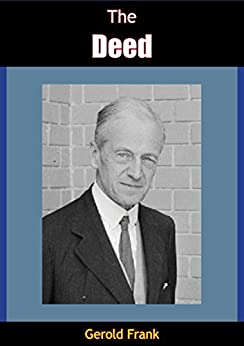
The two Eliyahus grew up with significant trauma from witnessing the violence of the Arabs, riots, hangings, Jewish refugee ships sinking off the coast of Haifa, and numerous other injustices by the British colonial administration in Palestine. All of this made them resent the British and strengthened the nationalist aspects of their Jewish identity. This perspective led the two Eliyahus down the path to eventually carry out their infamous mission, and perform “the deed” in which they assassinated Lord Moyne, the British Minister of State in the Middle East, in 1944.
The Deed begins by presenting some necessary background information to understand the extremely complex environment of Mandatory Palestine. Administered by the British and a minefield of conflicting interests, Mandate Palestine was formally established at the San Remo Conference of 1920. The British were given the mandate by the newly formed League of Nations and had promised by way of the Balfour Declaration of 1917 to establish a national home for the Jewish people in the land of Palestine. The 22 Arab states of today were formed at the same conference, demonstrating the legitimacy of this body and the creation of the new nation states being established at that time.
Despite the Balfour Declaration, the British also tried very hard to maintain good relations with the Arabs in and around the Levant during this time. There was quite a bit of violence and aggression between Palestinian Jews and Palestinian Arabs and the British were caught in the middle attempting to maintain peace. Unfortunately, the British often sided with the Arabs and tried to diminish the power of the burgeoning Zionist movement. The British eventually instituted the White Paper which severely limited the amount of legal Jewish immigration into Palestine to appease the Arabs.
The British also turned down dozens of ships carrying thousands of Jewish refugees fleeing the Holocaust in Europe. To make matters worse, the British prohibited Palestinian Jews from having weapons insisting that they were the only ones with the authority to police. However, the British repeatedly failed to protect Jewish settlements from Arab attacks and thus various Jewish paramilitary organizations were founded during this time using illegally-obtained weapons and ammunition to protect themselves.
The Deed details the Eliyahus' involvement in the Irgun and its offshoots, explaining how these underground terrorist organizations operated, their motivations, and goals. The Irgun, whose full name was HaIrgun HaTzva’i HaLeumi B’Eretz Yisrael, the “National Military Organization in the Land of Israel,” was a Zionist paramilitary organization founded by Ze’ev Jabotinsky, the leader of the Revisionist Zionist movement.
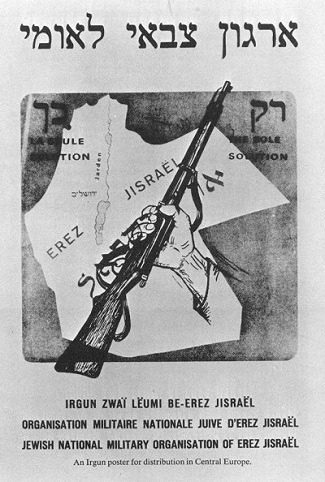
The Irgun was pitted against their political and ideological rivals, the Haganah, the purely self-defense (literally, “the Defense”) Zionist military organization of the Yishuv, which maintained mainstream support from the majority of the Jewish community in Palestine during this period. The Haganah protected early Jewish settlements in Palestine from Arab attacks. However, they never retaliated against the Arabs nor did they attack the British. The Irgun, on the other hand, took a much more offensive approach, using guerilla warfare tactics, often involving bombs or other explosives, to destroy British colonial buildings and infrastructure and attack the Arabs in retaliation.
Once WWII started, the Irgun split into the followers of Abraham “Yair” Stern, pejoratively called Sternists or the Stern Gang. Unlike the rest of the Irgun, they decided that even amidst the war the British were fighting against the Nazis, they should continue attacking the British to drive foreign rule out of the land of Palestine. Both Eliyahus found this split difficult to reconcile because on the one hand they detested the British for occupying their homeland and sending ship-loads of their brothers and sisters back to Hitler’s Europe to perish.
On the other hand, the British were fighting the Nazis, thus they had a common enemy. By continuing to attack the British, the Jews of Palestine would be weakening the Brits’ ability to fight the Germans which could result in a longer war and therefore a longer Holocaust. Both options seemed wrong to the Eliyahus. They had to decide between the lesser of two evils - fight the British to help end Jewish suffering in Palestine or leave the British be to help end the suffering of Jews in Europe.
The two Eliyahus wrestled with the decision for several days, wandering around the streets of Palestine late into the night feeling a crushing sense of helplessness. They felt like if they did not pick a side then they were just sitting ducks watching helplessly as their brethren get slaughtered all around them.
Ultimately, they both decided it was most important to fight for the liberation of Israel from colonial occupation and thus they became Sternists. The Sternists transformed later in the war from a military organization to a secret underground society called the FFI (Fighters for the Freedom of Israel) or Lehi (the acronym of the Hebrew, Lohamei Herut Yisrael). Once they decided to continue to fight the British, it was only a matter of time until they made the ultimate move that would cost them their lives - to assassinate the British Minister.
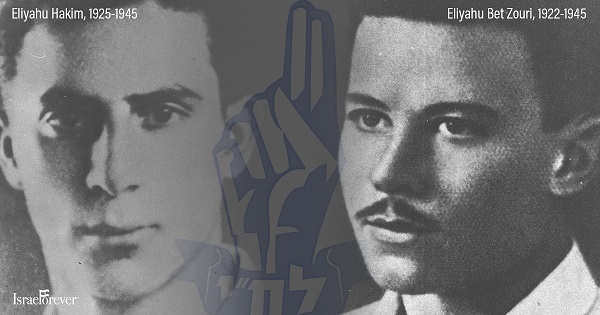
This book spoke to me because it provided detailed accounts of what it was like to live as a Jew in British Palestine. These were very complex times and even after studying the history and politics, it can be hard to grasp what life in the Yishuv was really like. The conflicting interests and strained, frequently-fluctuating relationships between the British, Zionists, and Arabs, came together to form the turbulent backdrop of life in Mandatory Palestine. Every move and decision was charged with political significance, and could lead to catastrophic consequences. This book offers a window into this unique, often ignored time in the history of our homeland.
I would recommend this book to anyone who is looking to gain a deeper understanding of the experiences faced and decisions made by pre-State Jews. If you want to learn more about the lives of the Jews during the Yishuv period - their perspectives, their loyalties, their struggles, their aspirations - read this book.
If you want to better understand the history of the Irgun, their ideology, and why they did what they did, this book offers valuable insights. If you want to learn these facts about the Irgun so that you can judge for yourself whether they should be condemned as Jewish terrorists or honored as courageous Hebrew Freedom Fighters, then this book is a perfect place to start. If you are interested in exploring Jewish identity, Israeli identity, and the emergence of Zionism or Jewish/Hebrew nationalism, this is the book for you.
Recommended for you:
About the Author


